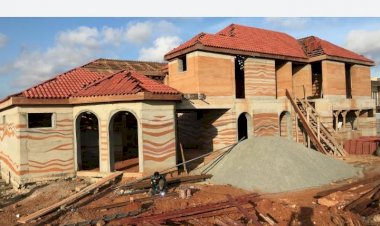Creative Financing Strategies in Africa's Real Estate Industry
Creative financing options offer investors the chance to invest in real estate projects with lower upfront capital requirements and reduced risk.

Real estate investment in Africa can be challenging due to several factors, including limited access to traditional financing options. However, innovative financing solutions have emerged in recent years, enabling investors to tap into Africa's lucrative real estate market. Creative financing options offer investors the chance to invest in real estate projects with lower upfront capital requirements and reduced risk.
One such creative financing solution is crowdfunding. Crowdfunding allows multiple investors to pool their resources and jointly fund a real estate project. This model has gained popularity in Africa, where investors can participate in real estate investments with as little as $100. It has also allowed developers to access a wider pool of investors, making it easier to raise capital for their projects. Crowdfunding platforms that specialize in real estate investment have been launched in several African countries, including Nigeria, Kenya, and South Africa.
Another creative financing solution is peer-to-peer (P2P) lending. P2P lending allows investors to lend money to real estate developers or property owners, often at a higher interest rate than traditional lending institutions. P2P lending platforms are becoming more widespread in Africa, offering investors attractive returns and developers access to much-needed capital.
In addition, real estate investment trusts (REITs) have gained popularity in Africa in recent years. REITs are investment vehicles that pool funds from multiple investors to invest in a diversified portfolio of income-generating real estate assets. REITs provide investors with a way to invest in real estate projects without the high capital requirements and risks associated with direct property ownership. Several countries in Africa, including South Africa, Kenya, and Nigeria, have established REIT frameworks, making it easier for investors to participate in this investment vehicle.
Another financing option is lease-to-own agreements. These agreements allow tenants to rent a property with the option to purchase it at a later date. This model has gained popularity in Africa, where many people cannot afford to purchase a property outright. Lease-to-own agreements provide tenants with the option to own property after a set period, while developers benefit from a steady stream of rental income.
Finally, there are various government-backed financing options available to real estate investors in Africa. Governments across the continent have launched initiatives to support real estate investment, including providing subsidies, tax breaks, and financing options. These initiatives aim to encourage investment in affordable housing, which is a critical issue in many African countries.
In conclusion, creative financing solutions have opened up new opportunities for real estate investors in Africa. Crowdfunding, P2P lending, REITs, lease-to-own agreements, and government-backed financing options offer investors a range of options to invest in real estate projects with lower upfront capital requirements and reduced risk. With Africa's growing population and increasing urbanization, the real estate market in Africa is expected to continue to grow, making it an attractive investment opportunity for both local and international investors.
If you have a real estate press release or any other information that you would like featured on African Real Estate Blog Post do reach out to us via email at [email protected]

 AREBP
AREBP 































